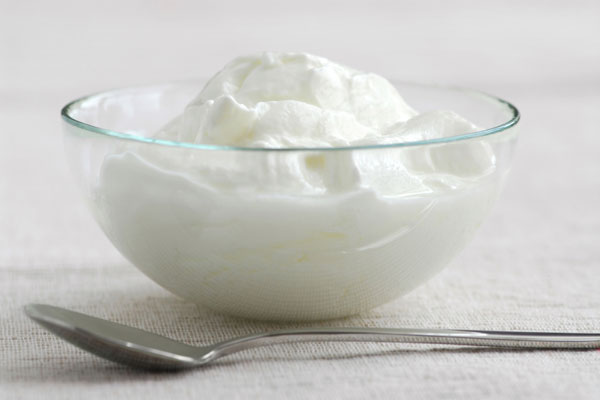There may be nothing better than a baked potato topped with sour cream or maybe a plate of cheesy nachos crowned with that creamy goodness. Many dishes are incomplete without sour cream and need that little extra sour creaminess. However, when a woman is pregnant there are many food restrictions needed to keep baby safe and healthy. It can be very difficult for a woman to navigate the do’s and don’ts of food when pregnant. We are here to answer one question of possible hundreds a woman may have while pregnant. The question is “Can you eat sour cream when pregnant?”.
Sour cream is made from cultured cream in its simplest form. Commercially, it can also contain rennet, salt, corn starch, carrageenan, calcium sulfate, guar gum, carob bean gum, sodium citrate, sodium phosphate, locust bean, and much more. We personally recommend staying away from brands that have stabilizer, thickeners, additives, or ingredients that you have no clue why they are in sour cream. Firstly, sour cream that has beyond four or five natural ingredients is just unnecessary. Sour cream is just fine (pregnant or not pregnant) without stabilizers, thickeners, or additives. A sour cream with these unnecessary ingredients is an inferior product and you and baby don’t deserve that. The best option is to read the label before you buy and look for minimal ingredients that you know are all-natural. Organic is typically best, but there are some non-organic products that will do just fine as long as the ingredients are suitable. It is also super easy to make your own natural sour cream at home. Check out the below video which shows you how to make sour cream within a few minutes.
Ingredients aside, another concern during pregnancy is pasteurization. Pasteurization involves heating milk to a specific temperature in order kill potentially harmful bacteria. Pasteurization is important because a bacteria like listeria can cause a miscarriage, stillbirth, and other serious long-term problems for the baby. According to the U.S. Department of Health & Human Services, pregnant women have an elevated risk of obtaining listeriosis (infection caused by listeria). Symptoms may include nausea, headache, fever, muscle aches, or none at all. While some sour cream is not pasteurized, the majority that you will find in the grocery store will be pasteurized and acceptable to eat while pregnant. If you are pregnant, be sure to check the label to verify pasteurization before buying.
In conclusion, look for a sour cream with all-natural ingredients. More importantly, look for pasteurized sour cream to avoid harmful bacteria that can be fatal to the baby. Likely you won’t come across non-pasteurized sour cream but always verify with the label that the product is pasteurized.

